The First 1000 Days of Life: Lessons from Social and Behavior Change Communication
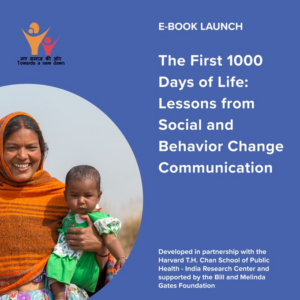
This e-book analyses literature, population-level data, and promising practices to improve maternal and child nutrition-seeking behaviors within communities in India. These include strategies, messages, media channels, and cultural platforms. This was authored by members of the lab as part of a project led by the Ministry of Women and Child Development, Government of India in technical partnership with the Harvard Chan – India Research Center and supported by the Bill and Melinda Gates Foundation. The e-book is a part of the Ministry’s larger initiative aimed to document, test and evaluate Social & Behavior Change Communication strategies to promote nutrition-seeking behaviors through Jan Andolan for POSHAN Abhiyaan, among pregnant women, nursing mothers and Community Health Workers.
The International Encyclopedia of Communication
 The International Encyclopedia of Communication is a 12-volume set that represents the definitive reference work in the field of communication studies. Dr. Viswanath is the editor of the Social and Behavioral Research section.
The International Encyclopedia of Communication is a 12-volume set that represents the definitive reference work in the field of communication studies. Dr. Viswanath is the editor of the Social and Behavioral Research section.
Click here for more information.
Health Behavior and Health Education: Theory, Research, and Practice
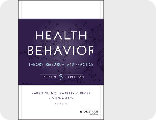 Dr. Viswanath co-edited the 5th edition of this classic public health textbook that offers a comprehensive analysis of health behavior theories that are most relevant to health education. Released by Wiley/Jossey-Bass Publisher in the fall of 2015, this edition includes substantial new content on current and emerging theories of health communication, e-health, culturally diverse communities, health promotion, the impact of stress, the importance of networks and community, social marketing, and evaluation. Dr. Viswanath also authored the three chapters that focus on models of interpersonal health behavior, communication theory, and health behavior change.
Dr. Viswanath co-edited the 5th edition of this classic public health textbook that offers a comprehensive analysis of health behavior theories that are most relevant to health education. Released by Wiley/Jossey-Bass Publisher in the fall of 2015, this edition includes substantial new content on current and emerging theories of health communication, e-health, culturally diverse communities, health promotion, the impact of stress, the importance of networks and community, social marketing, and evaluation. Dr. Viswanath also authored the three chapters that focus on models of interpersonal health behavior, communication theory, and health behavior change.
Click here for more information.
The Role of the Media in Promoting and Reducing Tobacco Use
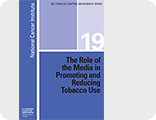 Dr. Viswanath was a senior editor of this federal government report that provided strong evidence that mass media has the power to both encourage and discourage tobacco use among teenagers. The report, released by the National Cancer Institute (NCI) along with leaders from the federal government and the nation’s public health community, is one of the most conclusive on the issue to date. This piece is the 19th monograph of the NCI’s Tobacco Control Monograph Series.
Dr. Viswanath was a senior editor of this federal government report that provided strong evidence that mass media has the power to both encourage and discourage tobacco use among teenagers. The report, released by the National Cancer Institute (NCI) along with leaders from the federal government and the nation’s public health community, is one of the most conclusive on the issue to date. This piece is the 19th monograph of the NCI’s Tobacco Control Monograph Series.
Click here for more information.
Mass Media, Social Control, and Social Change: A Macrosocial Perspective
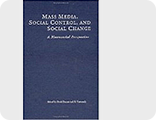 Dr. Viswanath co-edited the first edition of this textbook that explores the role of mass media as agents of social control and change. The book’s 17 chapters include such topics as:
Dr. Viswanath co-edited the first edition of this textbook that explores the role of mass media as agents of social control and change. The book’s 17 chapters include such topics as:
- The effect of mass media on opinion formation
- Social control, social change, and the knowledge gap hypothesis
- Community structure, reporter specialization, and content diversity
- From aggressive to injury-sensitive traffic crash stories
- Entertainment-education media strategies for social change
- The role of the mass media in the regulation of protest groups
- Journalistic occupational development and discourses of power
Click here for more information.
Socioecological Approach to Addressing Tobacco-Related Health Disparities
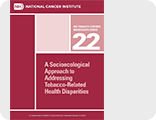
A Socioecological Approach to Addressing Tobacco-Related Health Disparities
This monograph, produced for the National Cancer Institute, where Dr. K. Vish Viswanath was one of the section editors, examined the current evidence surrounding tobacco-related health disparities (TRHD) across the tobacco use continuum—initiation, secondhand smoke exposure, current use, frequency and intensity, cessation, relapse, morbidity, and mortality—and the implications for future research and implementation of effective strategies.

You must be logged in to post a comment.